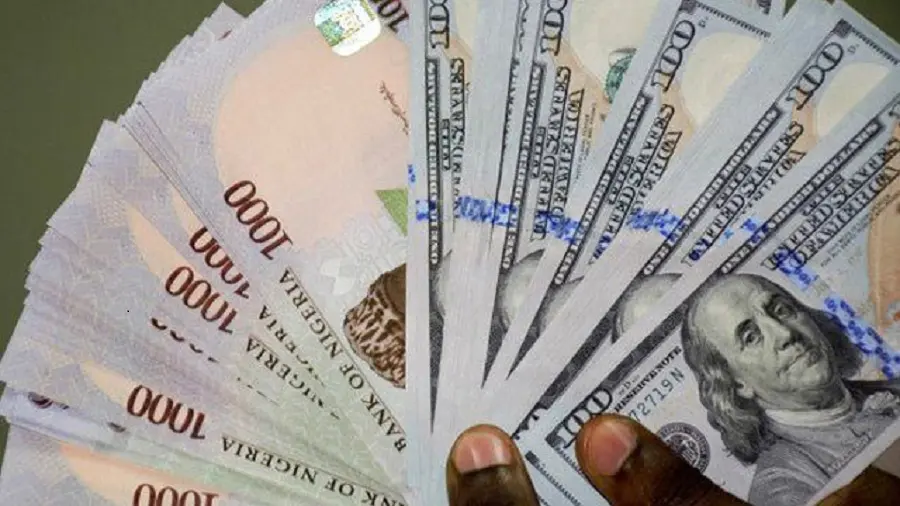
Nigeria’s local currency, the naira, began the new week on a negative trajectory as it continued to depreciate against the U.S. dollar at both the official and parallel (black) markets, highlighting persistent pressure on the country’s foreign exchange landscape.
Official Market Performance
According to the latest figures from the Central Bank of Nigeria (CBN), the naira weakened to ₦1,605.62 per dollar on Monday, May 5, 2025, compared to ₦1,602.18 on Friday, May 2. This represents a day-to-day depreciation of ₦3.44.
The continued slide at the official window underscores the challenges in stabilizing the FX market despite recent interventions and policy reforms by the CBN. The market has witnessed erratic movements over the past few weeks, influenced by demand-supply imbalances, speculative trading, and limited dollar inflows.
Black Market Reflects Steeper Decline
At the parallel market, which serves a large portion of informal and retail transactions, the naira depreciated by ₦5, trading at ₦1,610 per dollar on Monday, down from ₦1,605 at the close of last week. The widening gap between the official and black market rates remains a concern for economic policymakers, who are working to unify the exchange rate and attract more foreign investments.
External Reserves See Modest Growth
In contrast to the currency’s weakening, the CBN reported an increase in Nigeria’s external reserves, which rose to $38.8 billion in 2024. This marks a modest recovery, possibly driven by inflows from oil exports, Eurobond repayments, and foreign investments in Nigerian securities.
However, analysts warn that rising reserves alone may not be sufficient to stem the tide of naira depreciation unless accompanied by structural reforms that address the root causes of FX volatility—particularly Nigeria’s heavy reliance on imports and insufficient dollar liquidity in the local market.
What This Means for Nigerians
The continued depreciation of the naira has significant implications for inflation, purchasing power, and the overall cost of living. Imported goods and raw materials become more expensive, which feeds into higher production costs and consumer prices.
For businesses that rely on foreign inputs or international transactions, the exchange rate volatility adds uncertainty and complicates financial planning. It also raises concerns for students studying abroad and families supporting relatives in foreign countries, as remittance values are eroded.
Outlook
Despite modest improvements in reserves, market watchers note that confidence in the naira remains fragile, and any sustained recovery will depend on broader economic reforms, consistent monetary policies, and improved investor sentiment.
The CBN’s ongoing efforts to attract dollar inflows, curb speculation, and stabilize the forex market are being closely monitored by stakeholders, with hopes that a more stable naira can be achieved in the coming months.







Be the first to comment